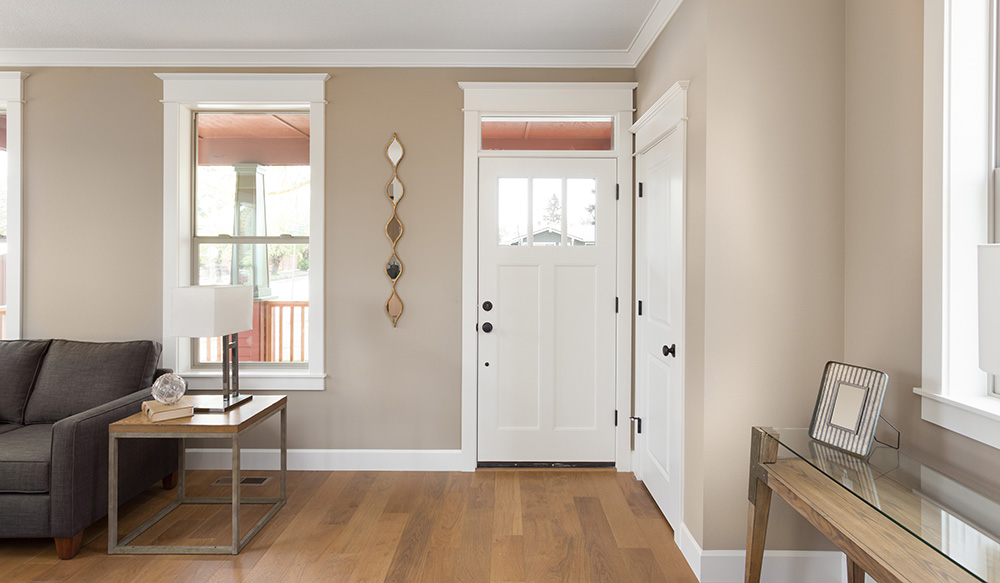A few years ago, my husband forgot to lock the driver’s door of his truck before going to bed. Wouldn't you know, that night a thief hit our street. He (or she) made off with an old GPS unit, a camera, and some loose change.
Everything that was taken was replaceable, and clearly this was a grab-and-run, so there was little chance of the same person returning to break into our house. Still, we felt violated, and that prompted us to take a closer look at our home security.
Here are some changes we made and tips we learned to protect our home from theft.
10 Simple Tips to Protect Your Lancaster Home from Theft
1. First, steal from yourself.
If you want to thwart a burglar, you need to think like one. What are your home's weak points? If you wanted to get into the house undetected, what would be the best entry point? When would you strike? Is it obvious when the homeowners are on the property and when they're away?
2. Invest in motion-activated flood lights.
Install these near each entry point to your home, and adjust their sensitivity to your preference. They're helpful when letting the dogs out, or when you carry the trash to the curb at night. They also deter intruders by illuminating areas that were previously obscured.
3. Trim the landscaping.
If a thief is going to access your home through a window, he’ll probably look for one next to an enormous, overgrown shrub, where there’s plenty of shelter from prying eyes. If you get rid of cover and keep the exterior well lit, chances are your house will look to risky to a would-be intruder.
4. Install battery-operated door alarms.
These simple, inexpensive devices offer two settings: a doorbell-like chime to alert you that the door has been opened—(great if you have small children who tend to wander outside)—or an ear-splitting siren to alert you of intrusion. Ahem...just be sure to turn the device off before letting your dog out in the morning. Ask me how I know.
5. Leave the lights on.
Smart home devices make this easier than ever, but you can also pick up inexpensive outlet timers if your home isn't high-tech. Use timers to controls lights and sound systems when you're away, so your home appears occupied at all times. (Think of the "Christmas Party" Kevin pulled off in Home Alone.)
6. Lock up even during the daytime.
My parents, who live in a safe, quiet neighborhood, leave their car doors unlocked in the daytime. Not too long ago they discovered that one of their remote garage door openers had been taken from the visor. They hadn't had need of it for several days, so they weren't sure how long it had been missing. It was a sobering reminder that our cars and homes are vulnerable at all hours.
7. Don't forget to lock your second-story windows.
The most secure door in the world isn’t going to mean anything if windows are left unlocked. Many people mistakenly think second story windows are out of reach, so bedrooms are left vulnerable. Lock those windows (especially those that can be accessed by a first-floor roof), and remember to secure any ladders on the property.
8. Upgrade to deadbolts.
Standard locksets alone certainly provide some security, but deadbolts take it to a new level, and they don’t cost much. Flipping a bolt also ensures that the door is secure even if your lockset is prone to malfunctioning (our front door used to sound like it closed securely, but on windy days we’d occasionally find it a few inches open).
9. Secure sliding glass doors.
Sliding glass door locks are notoriously easy for thieves to navigate. Add a security bar to prevent the door from sliding open even if the lock is compromised. This tip is also good for any sliding windows on your property.
10. Add security cameras.
Security cameras are no longer the enormous financial investment they once were. Being able to see your house's most vulnerable entry points right on your smartphone can provide peace of mind whether you're home or away.


